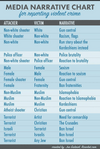Solparvus
Puritan Board Senior
This is a topic close and dear to my heart! In these days where poetry is pretty much relegated to the trashcan of the peoples as stuff mostly irrelevant to our lives, and Christian poets even moreso (with their talk of sin and judgment, repentance and faith), it is hard to make a true assessment of the matter. For instance, in just a short while — can't put any numbers as to when — all the unregenerate poets and writers extant will be swept into the horror of judgment and eternal doom. So whatever fame and recognition they receive from the world is fleeting, ephemeral — mere vanities.
And the opinions of genuine Christians? Well, many of them don't read poetry, and many churches — especially in the 20th and 21st centuries — have been against the arts, both literary and graphic. It is not so much a matter of being Reformed or not. Part of the problem is that we have not had a classic Poet — a true Laureate — sing of Christ, humankind, the Fall, redemption, eternal Hell, endless Heaven on New Earth, and life in these times and generations we are part of. Sing so as to arrest and touch the hearts of the faithful. But the dust has not settled on the field of battle that these days are. Not yet.
We had this thread a while back, "The ugly modern world - Awakening to beauty". The featured painting speaks to the sadness one feels when it hits that the world has become utilitarian, and we lost our souls by it. The modern view is that aesthetics are practically useless, and are only an indulgence. However, things like beauty, goodness and truth need no defense. They are transcendent and captivating, and the indulgence in them justifies itself.
We do need godly poets and authors who excel in their work. The Christian has the most reason to take up this work. If beauty, goodness and truth are all transcendent, who better suited to scale their heights than those who know God? Beauty, no less than goodness and truth.



